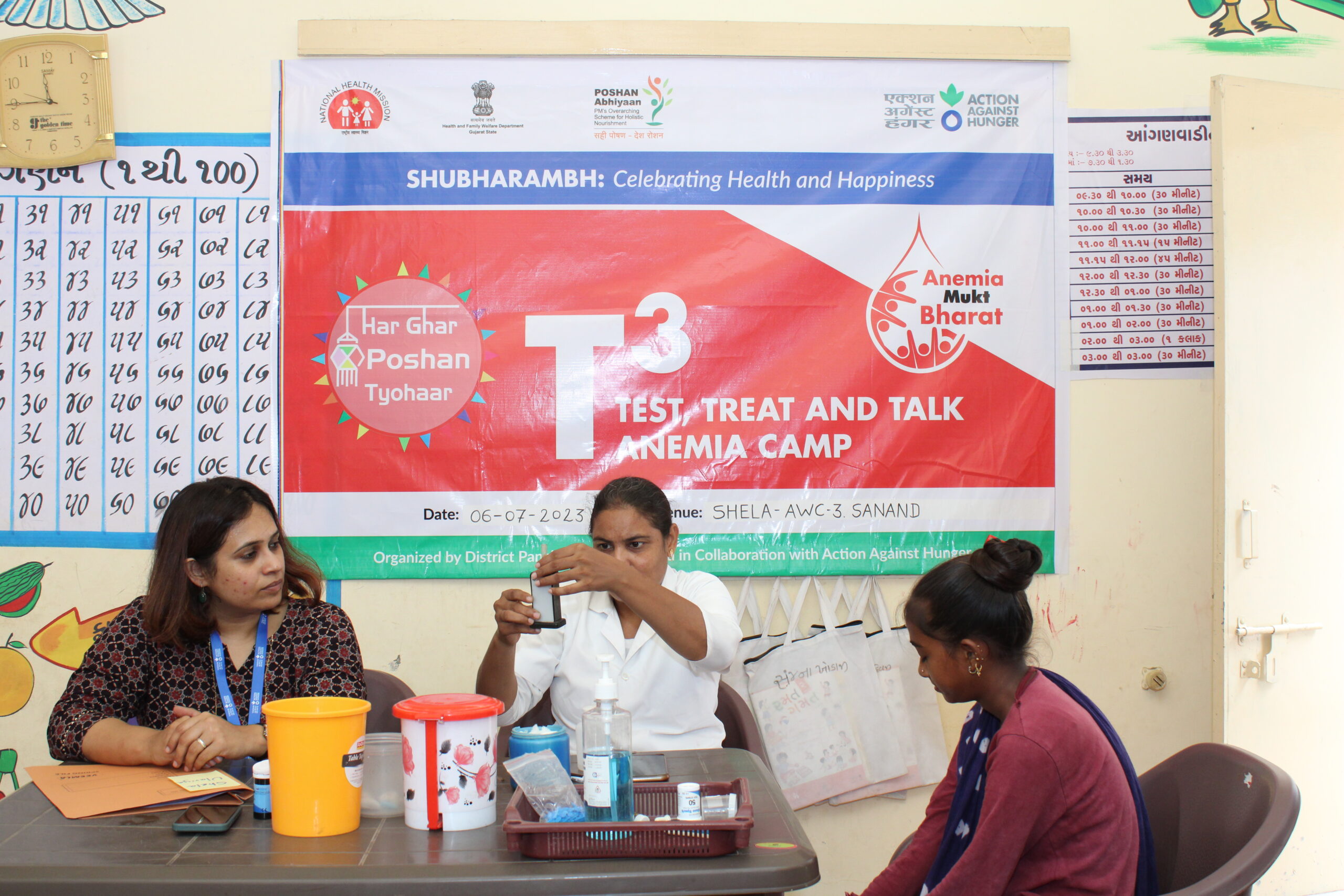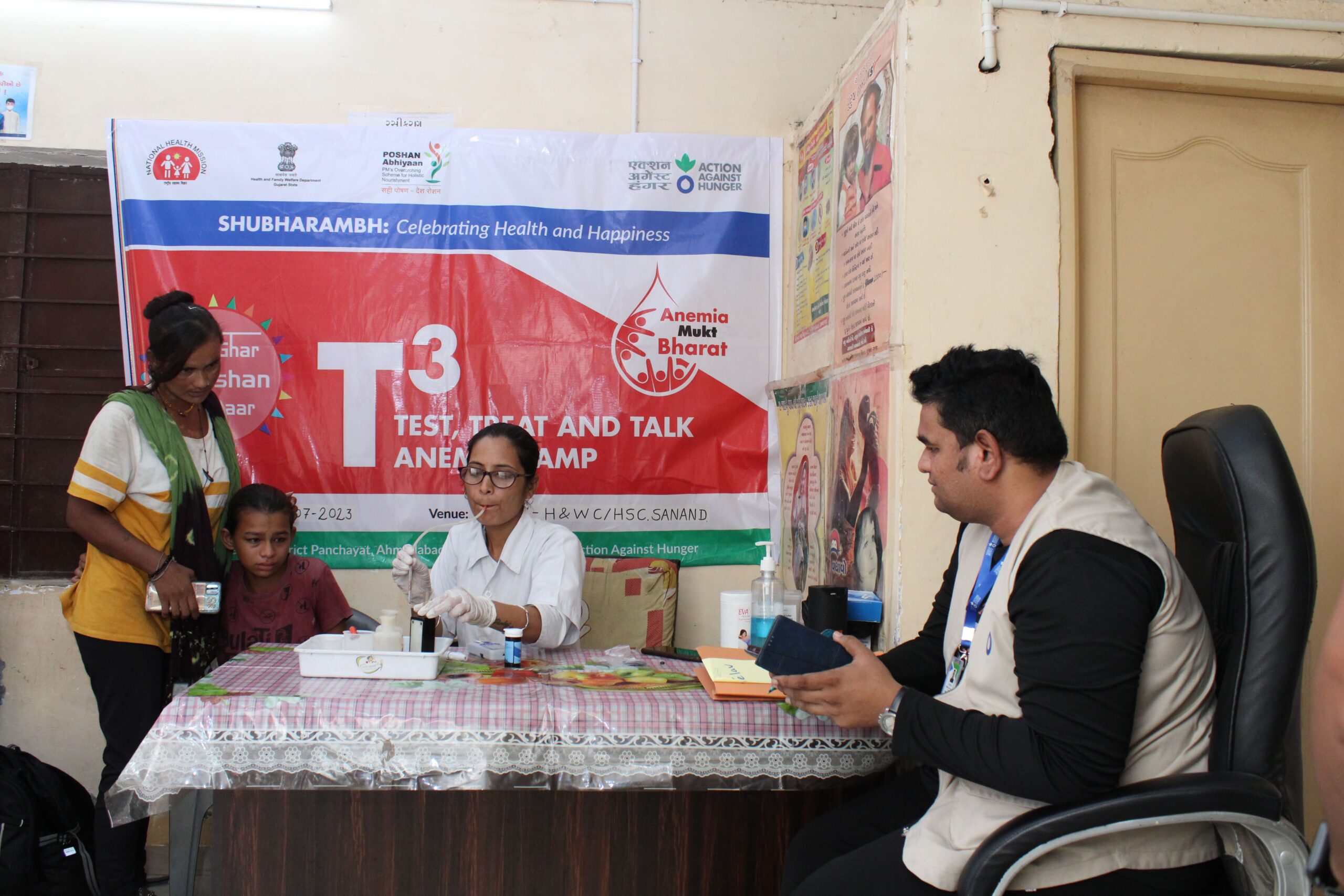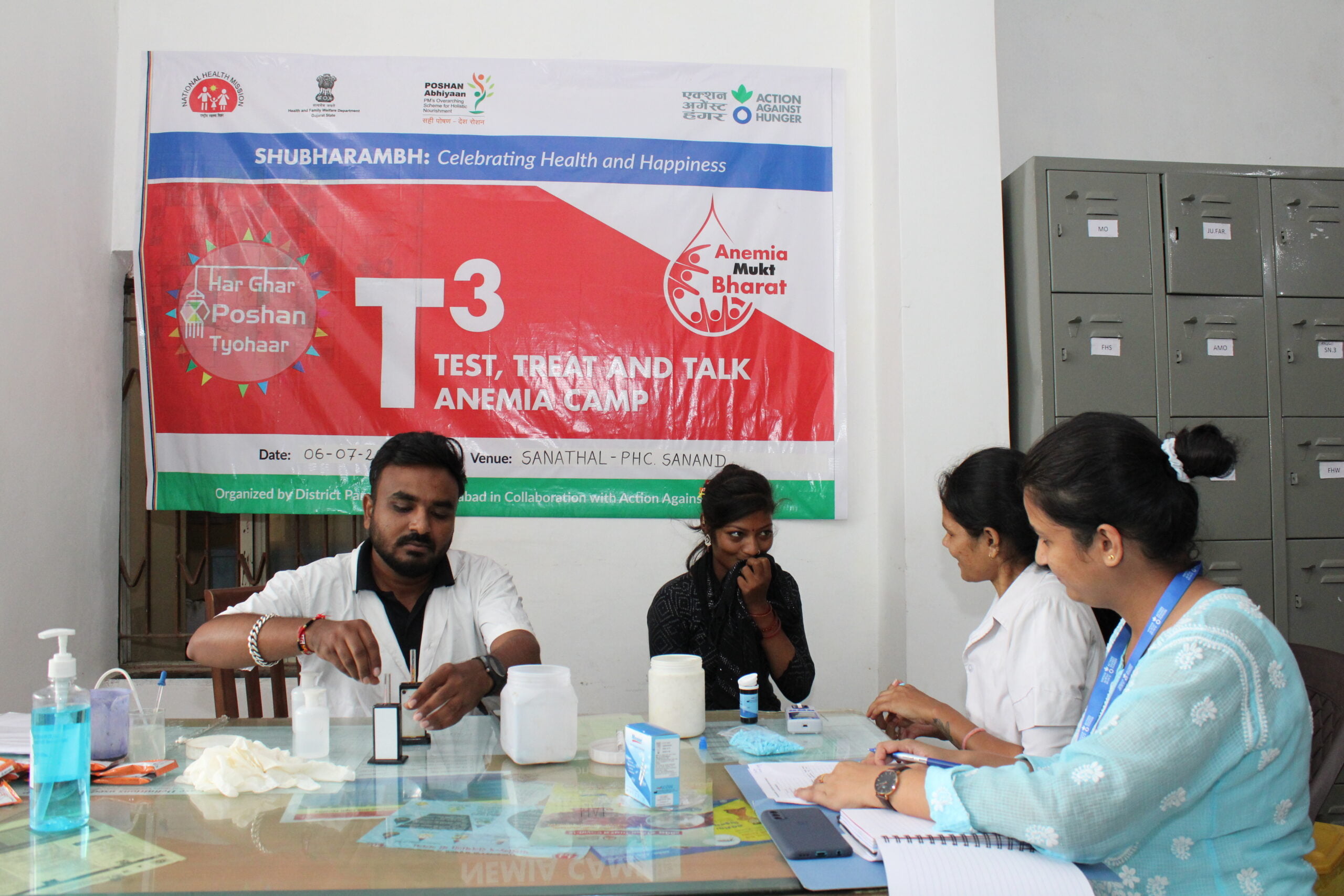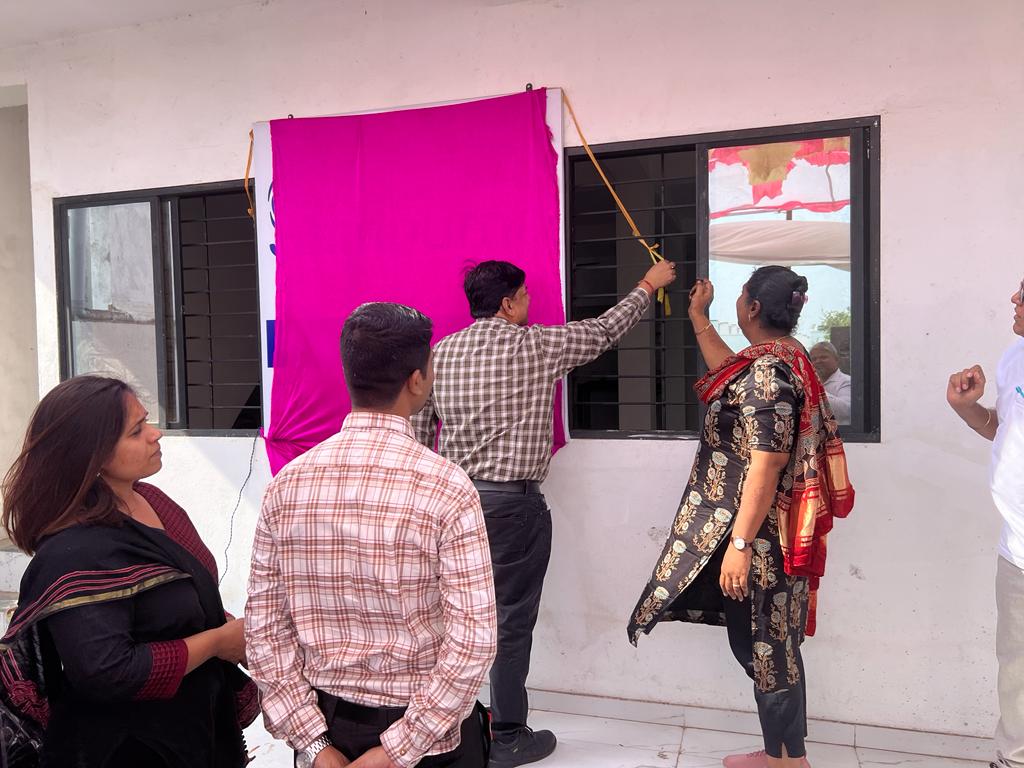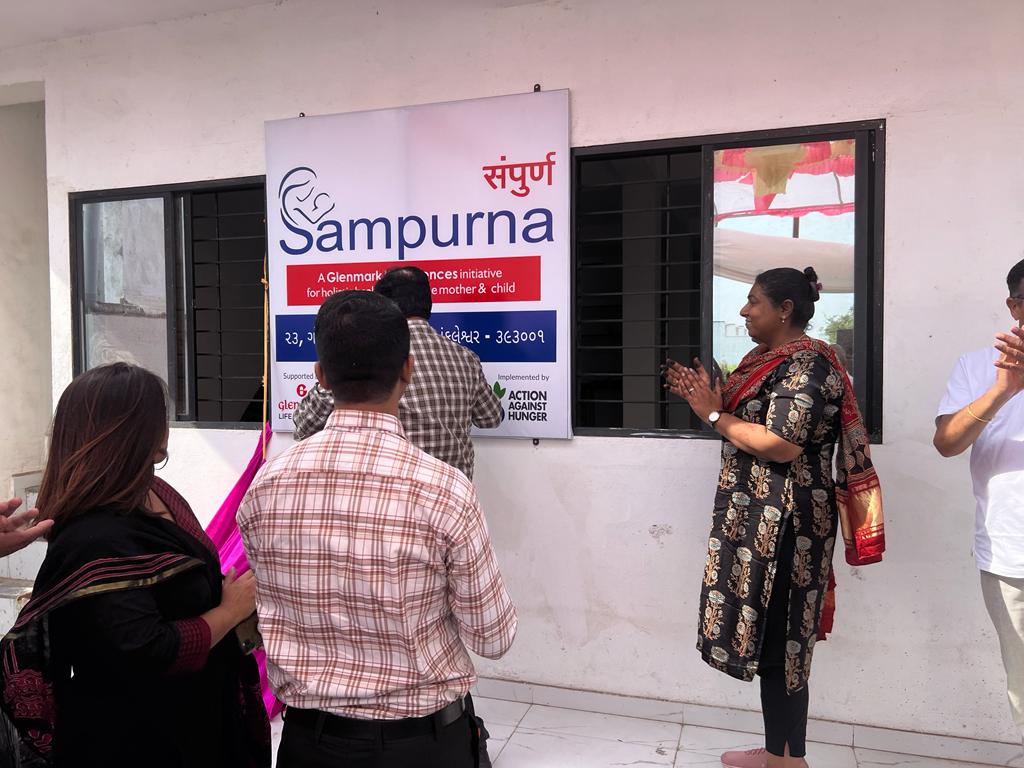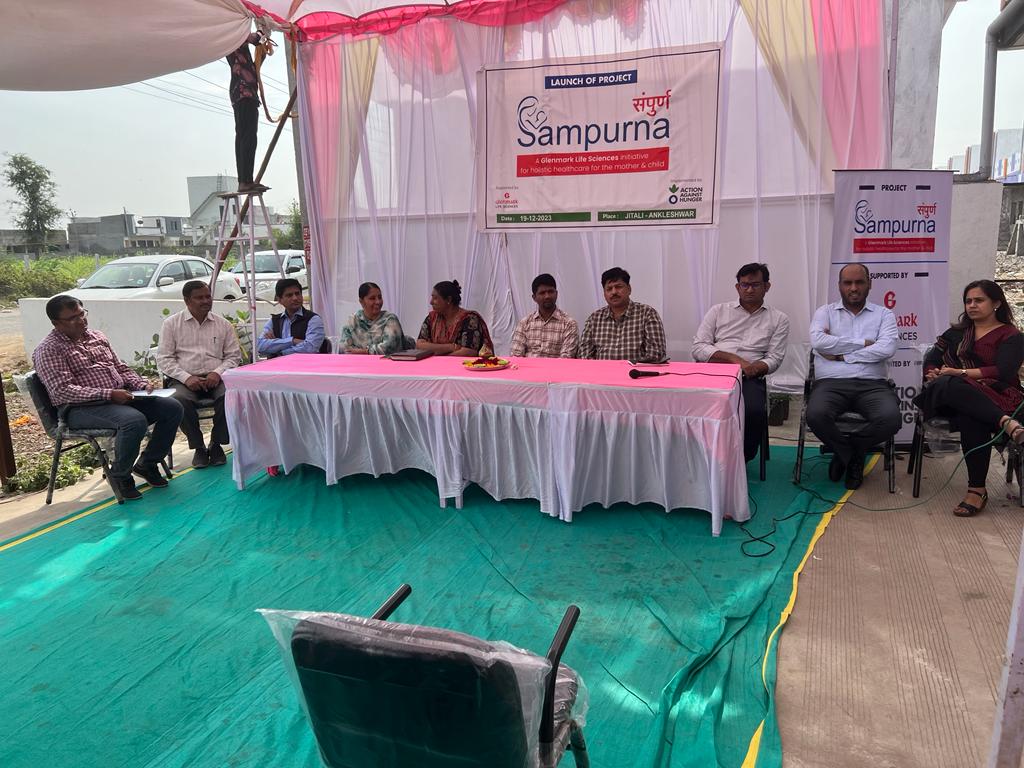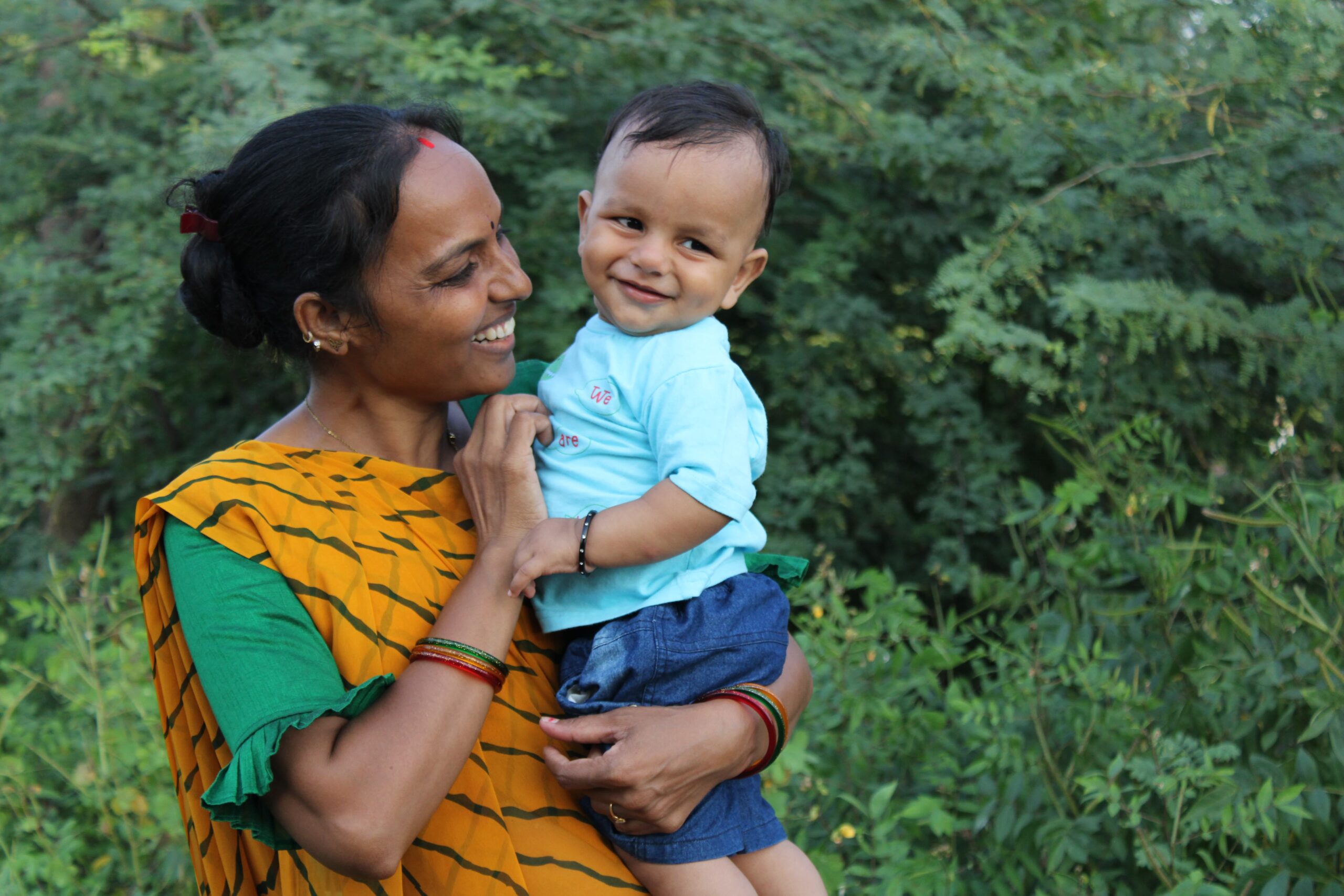India’s National Family and Health Survey – 5 (2019-21) highlights a concerning rise in the prevalence of anaemia among women of reproductive age, with an alarming 57%. This signifies a 7.3% increase from NFHS 4, indicating a pressing need for targeted interventions. In the adolescent demographic, the increase is even more pronounced at 9.2%, escalating from 54.1% to 59.1%.
In response to this health crisis, Action Against Hunger India has launched Project Shubharambh, a pilot initiative in Sanand, strategically aimed at mitigating the burden of anaemia among adolescent girls.
Objectives:
- Proactive Anaemia Testing and enhancing the quality of T3 (Test, Talk, Treat camps)
- Strengthening T3 (Test, Talk and treat) camps to facilitate early identification and testing of anemia amongst adolescent girls.
- Alleviating Burden on Specific Adolescent Girls:
- Targeting high-prevalence areas in Sanand to focus resources on those most in need.
- Nutrition Health Education sessions: Organizing nutrition and health education sessions and guiding adolescent girls on the basics of anaemia, its prevention, and treatment.
- Community Engagement and leveraging festivals
- Integrating community engagement and awareness programs by leveraging festivities of the traditional dance, Garba organized during and after the festival of Navratri to raise awareness on anaemia at the school and community settings.
Capacity & Ecosystem Strengthening:
In parallel, Action Against Hunger India is committed to strengthening the healthcare ecosystem. The organization will provide:
- Capacity-Strengthening Training:
- Focused capacity building of frontline functionaries of health and ICDS department by strengthening the current practices of identification, prevention, and treatment of anaemia.
- Sustainability Measures:
- Promoting sustainable practices of consuming locally and traditionally available iron rich foods in anaemia management to ensure long-term impact.
- Establishing partnerships with local authorities and stakeholders to integrate anaemia prevention into routine healthcare services.
- Promoting awareness among family members and adolescent girls to recognize the initial visible signs of anemia, encouraging adolescent girls to undergo testing, and facilitating early identification, prevention and treatment. This initiative not only aims to sensitize the community but also strives to promote the utilization of government-provided programs and facilities under anemia control initiatives such as free distribution of IFA tablets at schools and community settings and ensuring its consumption
Project Shubharambh is a holistic initiative designed to combat the rising numbers of anaemia among adolescent girls in Sanand. By combining targeted interventions, community engagement, and capacity-building efforts, Action Against Hunger India aims to create a sustainable model that can be scaled up to address anaemia challenges nationwide. Together, we strive for a healthier and brighter future for the adolescent girls of Sanand.
